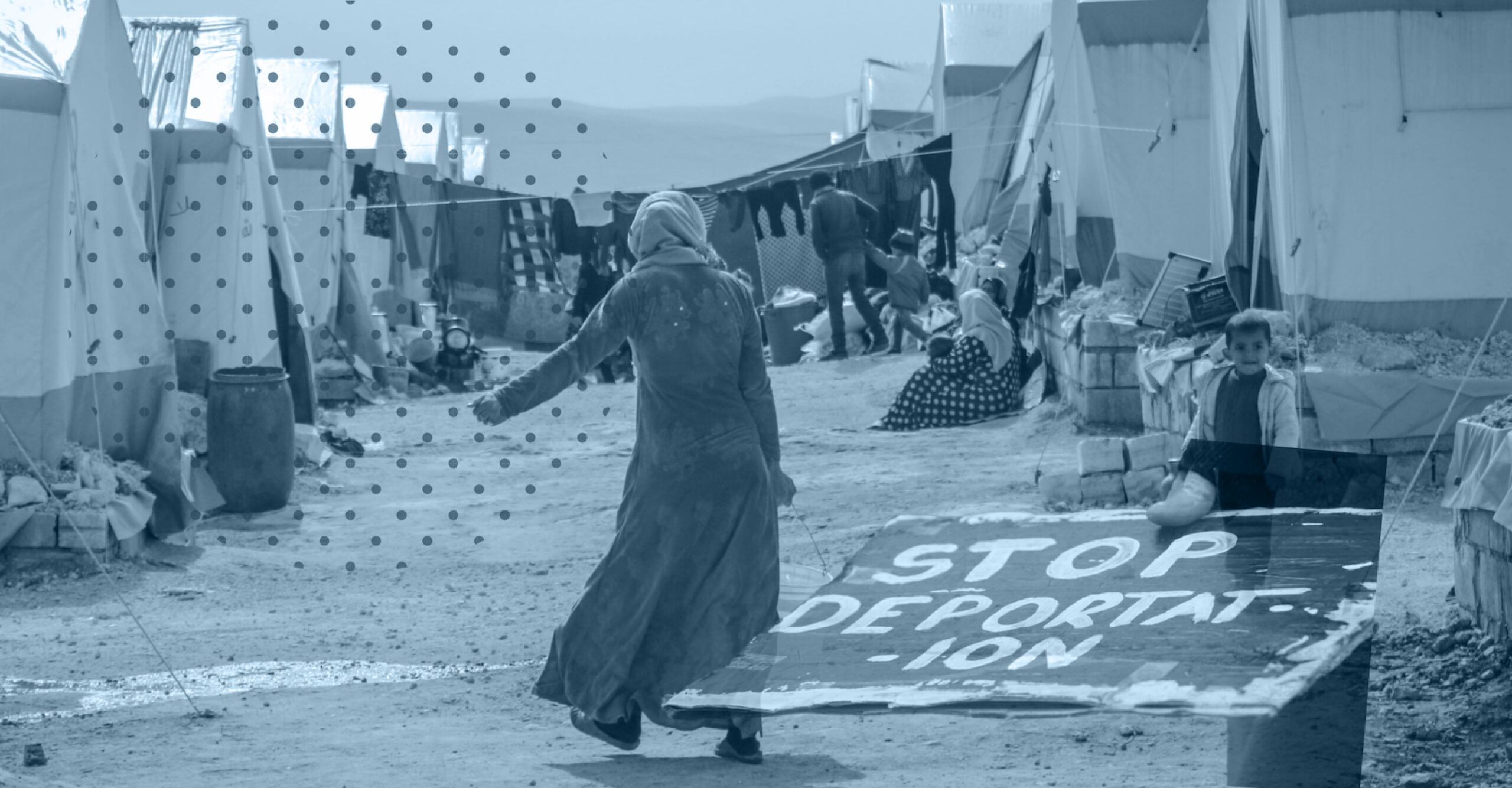Joint Statement: Cease the Forced Deportation of Syrian Refugees in Lebanon
29/05/2024
The Lebanese government must urgently and immediately cease the forced deportation of Syrian refugees and adhere to its international legal obligations.
We, the undersigned organizations, are deeply concerned about the recent measures taken by the Lebanese government regarding the deportation of Syrian refugees to areas inside Syria considered unsafe and about the session of the Lebanese Parliament that was held to hold the government accountable regarding the Syrian displacement in Lebanon on Wednesday, 15 May 2024 for the immediate deportation of displaced Syrians who are irregularly present in Lebanon. This session exceeded its intended scope, which was to address the one billion euros ($1.084 billion) gift provided by the European Union to Lebanon, instead leading to a package of recommendations calling for the immediate deportation of Syrian refugees in Lebanon.
The United Nations recently confirmed that Syria remains unsafe for the return of most refugees, with Syrians who fled the war facing serious human rights violations and abuses upon their return. Furthermore, In 2023, the Access Center for Human Rights documented 1,080 arbitrary arrests of Syrians in Lebanon and 763 cases of forced deportation, including minors, many of whom were registered with the UNHCR. Tragically, over 120 individuals among them remain unaccounted for after entering Syrian territory. By the end of April 2024, 685 arbitrary arrests and 433 forced deportations were reported. Additionally, an alarming trend of forced evictions emerged in 2024, with 1,306 cases of refugee individuals and families being expelled, often accompanied by municipal directives prohibiting their accommodation or rental, in an attempt to force them to return to Syria.
Human rights organizations have also documented killings of individuals deported from Lebanon to Syria. For instance, on May 9, 2024, Mahmoud Mohammed Rabie Hasna, who was forcibly deported on April 28, 2024, died from wounds sustained after being shot by Syrian regime forces when he attempted to re-enter Lebanon. Raafat Falih was also subjected to enforced disappearance in Syria after he was arrested and illegally deported from Lebanon on 10 January 2024. He finally appeared in Saydnaya prison on 14 May 2024, and his family was able to meet him.
Since 2011, over one million Syrian refugees have sought refuge in Lebanon, making it the largest refugee-hosting country in the world by area. Despite this, Lebanon has not ratified the 1951 Convention on the Status of Refugees or the 1967 Additional Protocol. Lebanon’s asylum legislation lacks adequate procedural safeguards. Concerning asylum, Lebanon’s domestic legislation is highly politicized and does not sufficiently align with the principles of due process. Chapter Eight of the Foreigners Law of 1962 outlines the country’s sole political asylum law, spanning Articles 26 through 31. This legislation serves as the foundational legal framework for governing the rights and responsibilities of foreigners within Lebanon. Notably, Article 31 explicitly stipulates that “if a decision is made to deport a political refugee, they may not be returned to a territory where they fear for their life or freedom.” Regardless, Lebanon is bound by the customary international principle of non-refoulement, which prohibits the forcible return of asylum seekers to countries where they face the threat of persecution. Lebanon is also bound to this principle because it is a party to the Convention against Torture, which also prohibits “refoulement” under Article 3. Lebanon has violated this principle by repeatedly failing to ensure that individuals at risk of torture are not returned or extradited.
Therefore, we urge the Lebanese government to immediately halt all forced deportations of Syrian refugees and fulfill its moral and legal obligations to protect the rights of all individuals seeking asylum within its borders. The principle of non-refoulement must be respected in accordance with Lebanon’s international legal obligations.
Signatories:
- HuMENA for Human Rights and Civic Engagement
- Access Center for Human Rights (ACHR)
- Action for Equality, Support, Antiracism (KISA)
- AMERA International
- Decostamine Initiative
- Cedar Centre for Legal Studies (CCLS)
- Anti-Racism Movement (ARM)
- MENA Rights Group
- Centre for Peace Studies (CPS)
- Mouwatana
- Syria Inside
- CALAM: Coexistence with Alternative Language and Action Movement
Related Posts
Have Any Questions?
To inquire about this statement and the context, email us or fill the form.
Join Our Newsletter
At the Anti-Racism Movement (ARM), we are constantly working on a multitude of different activities and initiatives. Most of our activities are only possible with the help of dedicated and passionate volunteers who work in collaboration with our core team.
The Anti-Racism Movement (ARM) was launched in 2010 as a grassroots collective by young Lebanese feminist activists in collaboration with migrant workers and migrant domestic workers.
Quick Links
Useful Links
This work is licensed under a Creative Commons Attribution 4.0 International License.
Developed by CONCAT
